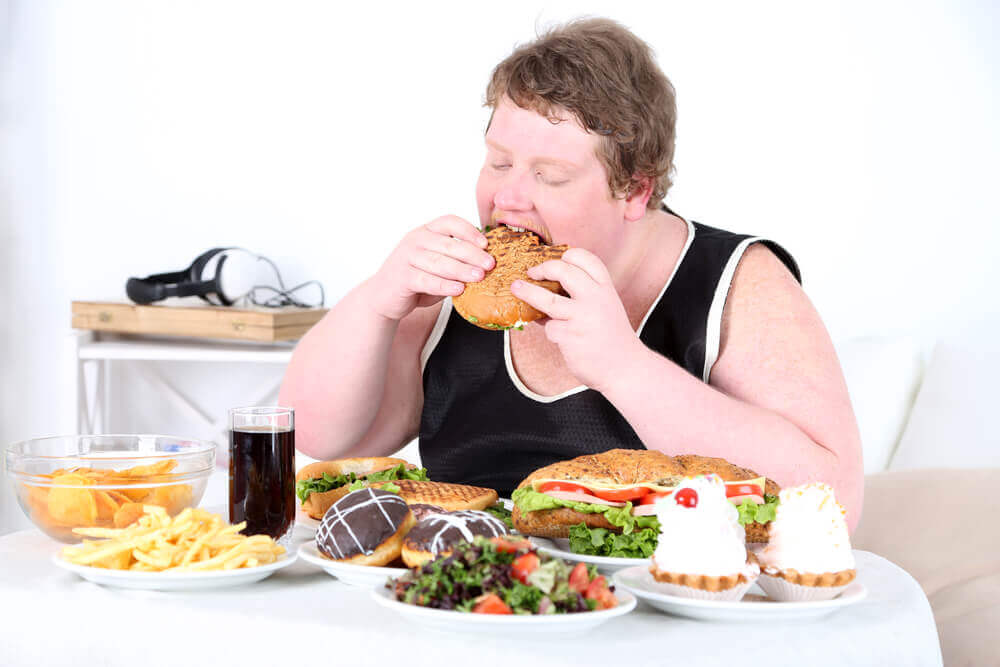Is Digestion Slower in the Summer?

Summer digestion is something that worries most people when vacation season begins. During this time, everyone’s routine is turned upside down, including their meals and eating habits.
During the summer we’re able to spend more free time with friends and family and often travel. This translates to big lunches, dinners on the beach, aperitifs on the terrace, etc. In a nutshell, it can be tricky to eat at regular times and maintain a balanced diet.
When you take the heat into account, digestion in the summer is a difficult process. Eating heavy foods can lead to bothersome symptoms like gas and bloating.
To keep this from happening to you, you should pay a little attention to your eating habits. Even simple things like eating lighter or chewing more could make a big difference.
Nobody wants to spend the summer at home with a stomachache. The following article will explain why digestion is slower in the summer, and what you can do about it.

Discover: 3 Probiotic Remedies to Improve Digestion
What affects digestion in the summer?
As we mentioned earlier, digestion in the summer tends to be slower and more difficult. However, heat isn’t the only contributing factor, although it’s true that high temperatures are associated with dehydration.
However, the fact that this occurs has more to do with nutrition habits. During the summer, people tend to eat more, and their diet becomes somewhat capricious. They consume more fried foods and alcohol, which slows down the digestive process and makes it more problematic.
A scientific study from 2000 confirmed that not only is alcohol harmful for digestion but that it also damages the organs of the digestive tract. This causes constipation, heartburn, gas, and bloating. It can even cause fatigue and stomach pain.

Don’t miss: Ten Healthy Foods to Regulate Digestion
How can we prevent digestion problems in the summer?
To prevent your digestion from becoming problematic in the summer, it’s important to follow a few tips to improve your nutritional habits. The most important are:
- Try not to eat too much food in one sitting.
- Avoid consuming alcohol in excess.
- Relax and take your time while eating, and make sure to chew correctly.
- Stay well hydrated and drink between 1.5 and 2 liters of water daily. If this is hard for you, try drinking iced teas or other infusions.
- Eat more meals in smaller quantities. Eat five daily meals, but make them light with a lot of fruit.
- Prepare light dinners, like salads or creamed vegetables.
Tips for meal preparation
In addition to these simple tips, here are some more for when you’re planning your meals:
- Raw vegetables and legumes tend to produce more flatulence. Try cooking them.
- Try to reduce the amount of animal fat that you consume. To do this, avoid deli meats, egg yolks, and certain fish, like salmon. Of course, you should avoid fried foods, since these make digestion slower and problematic.
- Additionally, if you feel heartburn, it’s best to avoid citric juices, as well as pickled foods like olives and pickles.
Don’t forget to exercise while on vacation. Playing sports helps the digestive system work better, while a sedentary lifestyle only complicates the situation. Try not to exercise just after eating, and choose a time when the weather isn’t too hot.
A 2015 study recommends practicing physical exercise since it helps lower sedentarism and apathy.
You might like: Four Medicinal Plants to Soothe Indigestion Naturally
All in all, summer vacation is a time to enjoy yourself, but also a time to take care of your body. If you don’t pay attention to your eating habits, digestion can become problematic during the summer. To prevent issues, try to always eat at the same time, and in a relaxed atmosphere. It’s important to chew well to reduce gas, as well as to enjoy food more.
Avoid saturated fats as well as battered and fried foods, since these foods take longer to digest. Additionally, keep your body adequately hydrated and limit your consumption of alcohol.
All cited sources were thoroughly reviewed by our team to ensure their quality, reliability, currency, and validity. The bibliography of this article was considered reliable and of academic or scientific accuracy.
- Bujanda L (2000). The Effects of Alcohol Consumption Upon the Gastrointestinal Tract (S/P). https://pubmed.ncbi.nlm.nih.gov/11151864/
- Ministerio de Sanidad, Servicios Sociales e Igualdad (2015). Actividad Física para la Salud y Reducción del Sedentarismo. Recomendaciones para la población (España). http://www.aecosan.msssi.gob.es/AECOSAN/docs/documentos/nutricion/observatorio/Recomendaciones_ActivFisica_para_la_Salud.pdf
This text is provided for informational purposes only and does not replace consultation with a professional. If in doubt, consult your specialist.








